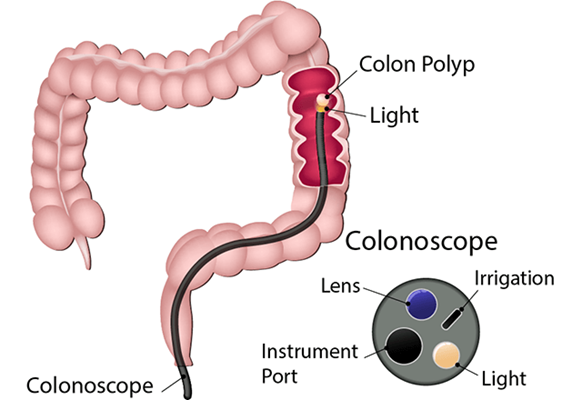Unveiling the Truth About Colonoscopy Your Guide to Understanding the Procedure

In the realm of preventive healthcare, colonoscopy stands as a pivotal tool in the detection and prevention of colorectal cancer, a disease that affects millions worldwide. Despite its importance, many individuals hesitate to undergo this procedure due to various misconceptions and fears. In this comprehensive guide, we’ll delve into the intricacies of colonoscopy, unraveling its significance, procedure, benefits, and addressing common concerns.
Understanding Colonoscopy:
Colonoscopy, a diagnostic procedure, involves the examination of the colon and rectum using a long, flexible tube equipped with a camera (colonoscope). It enables healthcare providers to inspect the lining of the colon for abnormalities such as polyps, inflammation, or cancerous growths. While the primary purpose of colonoscopy is screening for colorectal cancer, it also aids in diagnosing other gastrointestinal conditions like inflammatory bowel disease (IBD) and diverticulosis.
Procedure Overview:
Before undergoing a colonoscopy, patients typically undergo a thorough preparation process to ensure the colon is adequately cleansed, allowing for clear visualization during the procedure. This involves dietary modifications and the consumption of laxatives to empty the bowel. During the procedure, patients are usually sedated to minimize discomfort. The colonoscope is gently inserted through the rectum, allowing the physician to navigate through the entire length of the colon while inspecting its walls for any abnormalities. If polyps are detected, they can be removed and sent for biopsy to determine if they are benign or cancerous.
Benefits of Colonoscopy:
The benefits of colonoscopy are manifold. Firstly, it serves as a highly effective screening tool for colorectal cancer, enabling early detection and intervention, which significantly improves treatment outcomes and survival rates. Moreover, by identifying and removing precancerous polyps, colonoscopy helps prevent the development of colorectal cancer altogether. Additionally, for individuals with a family history of colorectal cancer or certain genetic predispositions, colonoscopy plays a crucial role in early detection and risk management.
Addressing Common Concerns:
Despite its benefits, many individuals harbor reservations or fears about undergoing colonoscopy. One common concern is discomfort or pain during the procedure. However, with advancements in sedation techniques and the use of smaller, more flexible instruments, discomfort is minimized, and patients often report little to no pain. Another concern is the preparation process, which involves fasting and bowel cleansing. While it may seem daunting, proper preparation is essential for the accuracy of the procedure and can be made more manageable with guidance from healthcare providers and the use of newer, more palatable laxative options.
The Importance of Regular Screening:
Regular colonoscopy screening is paramount for maintaining colorectal health, especially for individuals aged 50 and above, or those with a family history of colorectal cancer or certain risk factors. Screening intervals may vary depending on individual risk factors and previous findings. However, for most individuals, screening every ten years is recommended if no abnormalities are detected.
Conclusion:
In conclusion, colonoscopy stands as a cornerstone in the prevention and early detection of colorectal cancer and other gastrointestinal conditions. Despite any apprehensions, the benefits of undergoing this procedure far outweigh the temporary discomfort or inconvenience it may entail. By dispelling myths and misconceptions and embracing the importance of regular screening, we can take proactive steps towards safeguarding our colorectal health and enjoying a better quality of life.








